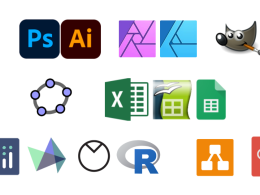Introduction
From virtual reality training to analytics-driven scouting, technology has revolutionized the sports industry in recent years. With every passing day, it is becoming increasingly clear that technology and sports are a winning combination. Not only does it improve performance on the field or court, but it also opens up new job opportunities for tech-savvy individuals who want to work in this exciting field. In this blog post, we’ll explore how technology has transformed the sports industry and what new job roles have emerged as a result of this digital revolution. So get ready to dive into the fascinating world where innovation meets athleticism!
The Role of Technology in the Sports Industry
The role of technology in the sports industry is ever-growing and has had a significant impact on how athletes, coaches, fans and businesses interact. Sports technology has allowed for more efficient communication between all parties involved in sports, which has led to a more competitive and professional sport landscape.
Athletic trainers and physical therapists are among the most in-demand jobs in the sports industry due to the demands of modern day sports. Technology, such as motion analysis software, allows trainers to analyze athletes’ movements and provide corrective measures accordingly. This type of information is invaluable for elite athletes who want to maintain their performance levels over an extended period of time.
Similarly, fans have become increasingly reliant on technology when watching their favorite teams play. Live streaming services allow fans around the world to watch games without having to miss any action. In addition to live streaming services, social media platforms such as Twitter and Facebook have also revolutionized how fans communicate with each other about sports events. These platforms allow fans to share photos and videos from games in real time as they’re happening, which allows for a more interactive experience between viewers and athletes.
The influx of technology into the sports industry has had a positive impact on job opportunities within the field. As technology continues to evolve, there will be even more opportunities for individuals who are passionate about sports and have skills in tech-related fields.
Emerging Technologies in Sports
In the past decade, technological advancements have revolutionized the sports industry. From wearable devices that track athletes’ performance to video streaming services that provide spectators with real-time updates, technology is playing a central role in the way people watch and participate in sports.
The widespread use of technology has led to new job opportunities in the sports industry. For example, software developers are needed to create new applications and websites that integrate digital platforms with sports data. marketers are also needed to create and market these new products. And finally, there are personnel responsible for maintaining and upgrading these platforms and apps, such as webmasters, system administrators, and programmers.
While many jobs in the sports industry will change as a result of technology advances, others will become more necessary due to increased automation. For instance, human statisticians will be required more often than ever before to parse complex data sets in order to understand how athletes are performing. And since many sports now involve high-speed camera footage from dozens of angles, video editors will be pivotal in creating smooth transitions between disparate images.
Overall, technology is transforming the way people consume sports content and perform physical activities. It’s also creating new career opportunities for those who can harness its power for good – from developing cutting-edge software to creating beautiful videos that capture the excitement of sport on social media.
The Future of Sports Jobs
In the sports industry, the future is looking bright for those in technology-related fields. There are a number of new and exciting technologies that are changing how sports are conducted and televised, which is making jobs in this field more diverse and interesting than ever before.
Below are three examples of how technology is transforming sports:
1) Sports video streaming services like Netflix and Amazon Prime have made watching live sporting events easier than ever for fans. Now, people can watch their favorite teams play from anywhere in the world without having to pay high cable bills. This has created a more global sport audience, which has led to increased demand for employees who can work with digital platforms.
2) Social media has played a big role in the way sports fans communicate with each other. This platform has allowed athletes to connect with their fans directly and give them access to exclusive content that would be impossible to see through traditional media outlets. As a result, social media managers are increasingly being sought after by sporting organizations to help manage their online presence.
3) Technology is also changing how games are played on the field. With virtual reality becoming more widespread, there is growing interest in using this technology to create unique game experiences for spectators. This could lead to major changes in how professional sports leagues operate, as well as new career opportunities within the gaming industry.
Conclusion
Technology is changing the sports industry in ways that are both exciting and challenging. As sports become more global, there is an increased demand for technology-driven services and products. At the same time, many traditional sports jobs have been replaced by automation or outsourcing. In order to keep up with the ever-growing pace of change, athletes and fans alike will need to be proficient in using new technologies.








